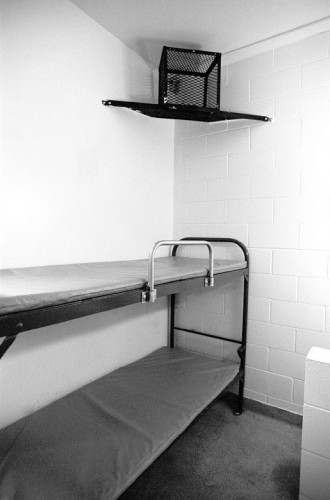Florida recently enacted legislation that will help prevent the state from locking children up and throwing away the key when they are tried and convicted as adults. Currently, Florida sends more children into the adult criminal justice system than any other state.
HB 7035 makes Florida comply with recent Supreme Court rulings that bar mandatory life sentences without parole for children tried and convicted as adults for the most serious offenses. It also allows most arrested children the opportunity to show a court that they have been successfully rehabilitated and should have the chance to be released.
Specifically, the new law, which went into effect on July 1, 2014: 1) provides criminal penalties applicable for certain serious felonies by juveniles; 2) requires judges to consider specified factors before determining if life imprisonment is appropriate; 3) provides review of sentences for specified offenders; 4) provides for proceedings for determining if life imprisonment is appropriate for offenders convicted of certain offenses; 5) provides sentence review proceedings after a specified period by the original sentencing court for certain offenders; 6) provides for subsequent reviews; 7) requires the department of corrections to notify offenders of eligibility for sentence review; 8) entitles offenders access to counsel; 9) enumerates factors to be considered in sentence review; 10) requires courts to modify sentences if certain factors found; 11) requires courts to impose probation if sentence is modified and 12) requires written findings if court declines to modify sentence.
Tania Galloni, director of the Southern Poverty Law Center’s Florida legal office, said:
This was long overdue, especially after the hysteria of the 1990s that led so many states to buy into the mantra of ‘adult time for adult crime.’
But much more remains to be done. For example, the overwhelming majority of children funneled into Florida’s adult criminal justice system are not charged with the most serious offenses. They are not criminal super-predators.
Prosecutors’ discretion, which a judge cannot overrule, has resulted in wild disparities in how a child is treated from one jurisdiction to another. Sometimes the difference between a child facing juvenile court and adult prison can be as simple as what side of a county line the child was standing on when the offense occurred.
Once these youngsters are charged as adults, many languish in adult county jails as they await trial. They’re often isolated and don’t have much opportunity to receive an adequate education as they wait. This occurs before a court has even determined whether these children are guilty of any offense.
Galloni added:
If convicted, these children face a lifelong battle against being treated as a ‘convicted felons.’ This isn’t a recipe for better public safety. Pushing these children into the adult system only alienates them once they are released and struggling to get their lives back on track.
Public safety is enhanced only when we rehabilitate young people through evidence-based treatment in the juvenile justice system. We don’t benefit from a system that needlessly destroys young lives in a misguided and ineffective effort to protect the public. Our state has certainly taken an important step, but it is clear more work remains.










